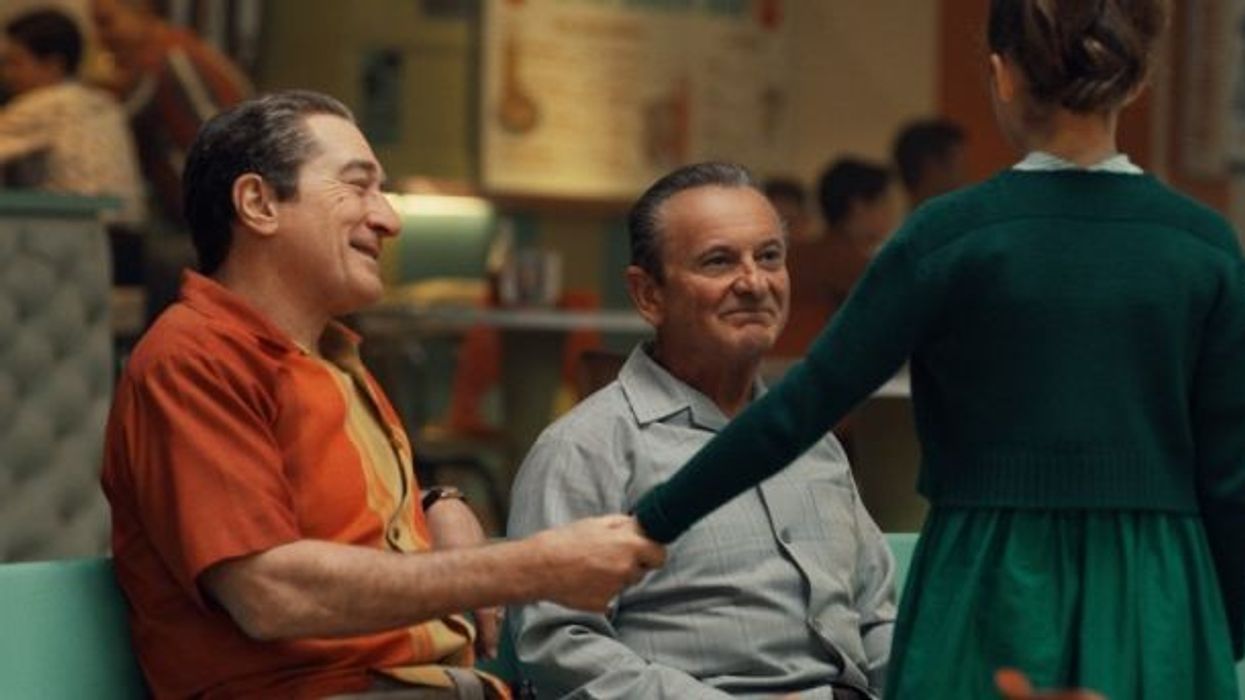'The Irishman': Read and Download the Script Now
If you read and download The Irishman script, you can learn a ton of lessons about pacing, structure, and narrative storytelling.

The Irishman is Netflix's frontrunner for multiple Academy Awards.
The screenplay was written by Steve Zaillian, who specializes in sweeping epics like Schindler's List and Gangs of New York.
But tackling multiple decades in the life of Frank Sheeran was no easy task.
Sure, Zaillian had great source material, but how do you structure a movie that carries our antihero over such an expansive amount of time?
And how can you keep the reader interested?
Let's look at some of the miraculous things The Irishman script does and the lessons you can learn from reading it again and again.
Let's go paint some houses.
Read and download 'The Irishman' Script Here!
I found this movie to be special on many levels. When you boil it down, it becomes about the intersection of friendship, family, and pride.
A truly deep and sweeping portrayal of the behind-the-scenes crime syndicates that helped create the America we know, only to fade away into legend.
That's how you develop great characters.
While there are lots of claims against Sheeran's account of history, the movie does an incredibly good job distilling them into a gripping narrative.
Even at over three hours long, the story feels like it moves at a good pace. The same goes for the 146 pages of the screenplay.
Before we go too deep, let's hear from Steve Zaillian about writing the script in a short interview with Netflix.
It's interesting to see the themes and thesis behind what drew Zaillian to the story.
I think the idea of the details being what draws us to these kinds of stories is right. We have seen hundreds of films about organized crime, but the unique details of the lingo, hierarchy, and the natural way Frank fell into this world are unlike any other.
I also liked hearing how the voiceover came naturally into the story. Since this movie spans such a large time period, it does make sense that voiceover would be crucial to getting the audience to understand how much time had passed -- and why what they were talking about was important in a historical context.
So how did Zaillian boil it down?
The majority of the script takes place in the 20 years between 1955 and 1975.
But Zaillian knew that wasn't the whole story. So he worked to make sure the repercussions of that era were also felt into the script's third act. While no major plot points happen there, we see the completion of Frank's arc. How the disappearance of Hoffa ruined him, his family, and his friends.
There's a prison, the old folks' home, and, eventually (as it is implied) death for Frank. So how do you take bold chances like that as a writer?
For Zaillian, doing a gangster movie with Martin Scorsese was a dream project. So he didn't want to get in his own way. He wasn't worried about how the movie would be made, the de-aging or the budget or the VFX -- he just wrote it. And that is crucial.
A great story helps separate you from the rest of the world and makes your script stand out. Let someone else worry about the rest, just get something great down.
Lucky for Zaillian, he had a book to use when it came to the details, but he also knew how to research outside of the fact. That helped him maintain a clear world on the page.
Take a look at how he incorporates real-life elements and details within his storytelling to let the reader know he's an authority figure on the subject, and what he's writing is controlling us to think and feel a certain way...
While this is just a small scene, we can learn a lot from it. Hoffa thinks he's the real person who runs America? How do we know this, he's higher up and looks down on the White House.
We know he has drapes, which makes us think he can close out that world, too. This bit of scene description gives layers to Hoffa's power and relationship to America.
Trucks run the place and Hoffa runs the trucks.
The prose here is also fairly sparse. We have the scene set without too much poetry or metaphor. We get into the important details and we get out fairly quickly. It's an excellent lesson in how you can do a lot with a little.
What's next? Write your own script in 10 weeks!
Screenwriting is hard. But to become a filmmaker, you need to learn script writing to master storytelling. We'll give you free lessons.
Click for more.

















